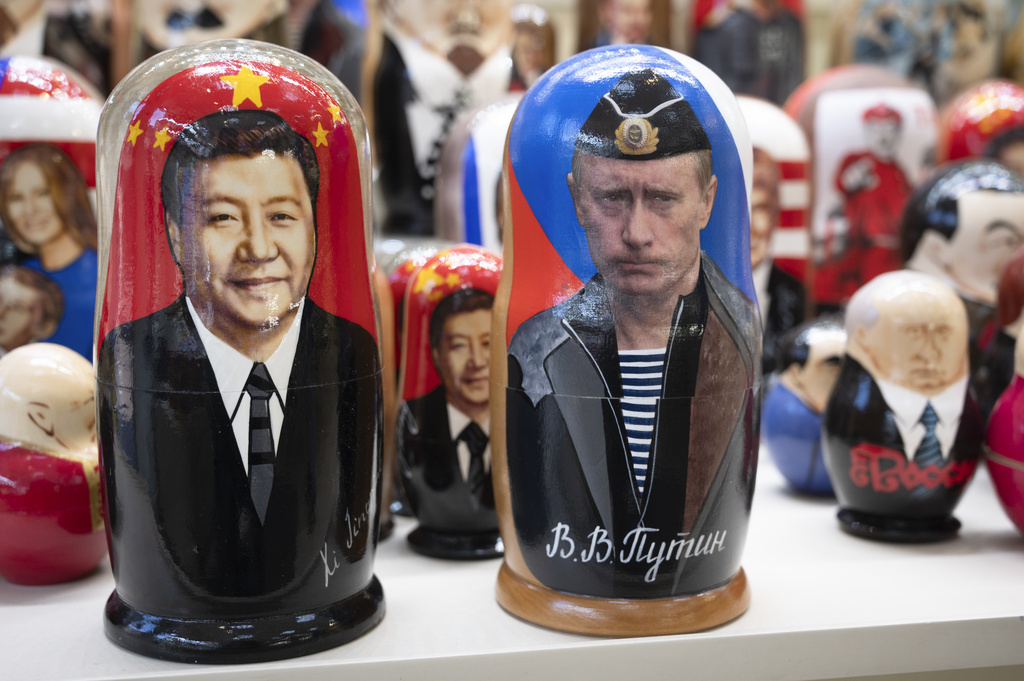Why does China increase the supply of dual-use goods to Russia?

As Russia remains isolated after its full-scale invasion of Ukraine, China has become a key source of supply for dual-use goods that critically impact Moscow's military potential.
Chinese support for Russia is not a series of random or chaotic operations – it is a well-established system of logistics, financing, and technological exchange. According to MERICS, in 2024 alone, Beijing supplied Russia with dual-use goods worth over $4 billion. The monthly average for these supplies was approximately $300 million, reaching a then-record high of $600 million in December 2023, with the upward trend continuing thereafter.
This statistic does not merely record a commercial fact – it indicates that China is consistently and massively bolstering Russia’s military-industrial complex, even under the threat of secondary sanctions.
What Exactly China Supplies: From Microchips to Explosives
The term "dual-use goods" encompasses a wide range of components: from microelectronics to chemical reagents. China sells Russia navigation equipment, jamming technologies, parts for fighter jets, and nitrocellulose – a key ingredient in modern ammunition. Such goods can be freely used in civilian industries, but their significance for weapons production makes them strategically vital.
Specific cases illustrate the scale of the problem. A Reuters investigation revealed how the Russian Biysk Oleum Factory, which produces TNT, RDX, and HMX explosives, received German Siemens equipment through Chinese intermediaries Huizhou Funn Tek and New Source Automation. This example demonstrates that China not only supplies its own products but also serves as a transit zone for European technologies that could not reach Russia directly.
How China Circumvents Sanctions: Logistical and Financial Channels
Beijing has developed a network of shell companies registered in offshore jurisdictions, operating through Hong Kong, Macau, or third countries in Central Asia. As a result, the sanctions imposed by the EU and the US are effectively rendered ineffective. Banking operations are often conducted in yuan to avoid dollar-based jurisdiction and blockages through SWIFT. Some Chinese banks have already faced EU sanctions for facilitating transactions with Russian military suppliers, but China’s financial system remains flexible enough to quickly find workarounds.
The Goal of Sino-Russian Cooperation Goes Far Beyond Business
Despite official claims of neutrality, China deliberately chooses the role of the Kremlin’s technological rear. This stance is part of Beijing’s broader strategy to weaken the West, promote a multipolar world, and preserve Russia as a strategic partner. According to NATO analysts, Beijing is a “decisive enabler” of Russia’s military efforts. In June 2024, the G7 directly accused China of aiding Russia, labeling such actions a threat to global security.
The United States has been pursuing a targeted policy against Chinese companies collaborating with Russia’s military-industrial complex for several years. The US Department of Commerce’s Entity List has been expanded to include manufacturers of microchips, drones, and guidance systems. In August 2025, a bipartisan bill was introduced in Congress, demanding sanctions against any Chinese entities or officials assisting Russia’s defense sector. The EU has expanded export controls on dual-use goods and imposed restrictions on several financial institutions in China that service dubious export schemes.
What to Do Next: A Plan of Action for Allies
Effective countermeasures require synchronized efforts from the US, EU, Japan, South Korea, and other partners of Ukraine. First, sanctions lists must cover the entire supply chain – from manufacturers and traders to logistics providers, insurers, and banks. Second, a global registry of companies and vessels involved in supplying dual-use goods to Russia should be established. Third, mechanisms for export verification through the Trade and Technology Council (TTC), which is already working on standardizing control of sensitive goods among partner countries, need to be strengthened. Finally, it is crucial to invest in Ukraine’s technological capabilities to detect and block the use of Chinese components in Russian weapons.
Time is working in Russia’s favor. Every month without an adequate response allows Moscow to restore lost production capacities and modernize its weaponry. Chinese assistance in the form of dual-use goods is not merely commercial export – it is a strategic contribution to the continuation of the war. As the case of German Siemens equipment supplied through Chinese intermediaries shows, even countries with the strictest sanctions are not immune to their technologies being used against Ukraine. The West has the tools to stop this, but the key question is whether there is the political will to act immediately.
Volodymyr Kuznetsov, communications specialist, expert at the United Ukraine Think Tank